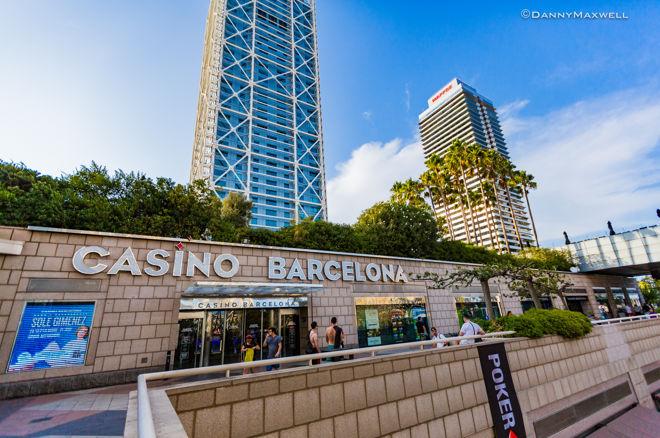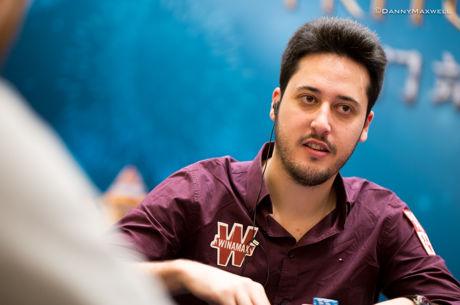Shared Poker Liquidity in Europe: France and Spain Ready, Italy Delays

After a 2017 that saw France, Spain, Italy and Portugal agree upon long-awaited shared liquidity for poker players in each respective jurisdiction, the New Year is beginning with some momentum toward enforcing the new policy. It seems, however, that not all four countries are on the same diligent path to this end, but clear moves are being made nonetheless.
France and Spain appear to be the most eager to get out of the gate, with both countries recently solidifying their commitment to launch shared liquidity early in Q1 of 2018.
France gaming regulator ARJEL posted an announcement on their website earlier this week that recalls the July 6 shared liquidity agreement signed in Rome, following with, “Six months later, Spain and France are able to announce that Franco-Spanish poker tables will be offered to players from both countries in the next few weeks.”
The DGOJ, Spain’s gaming regulator, announced last Friday that a resolution approving shared liquidity has been signed and will go into effect once published by the official State Gazette likely later this month. that the DGOJ released this statement regarding the anticipated benefits of the coming shared liquidity.
“The possibility of [sharing] liquidity with players from other jurisdictions … in games such as poker … increases the variety and innovation and therefore the consumer choices, reinforcing the regulated online gambling market and, with it, its social sustainability.”
The Spanish gaming regulator also reiterated the quick timeline, assuring that French and Spanish players may be seated at the same virtual tables “starting in the coming weeks.”
Delays Abound
While France and Spain lead the way to implementation, Portugal and Italy appear that they will be arriving late to the party.
Portugal has made progress, having included a set of amendments in their 2018 state budget proposal that includes provisions for pooling players across operators and country borders. The implementation of regulated gambling and the license-issuing process in Portugal, however, has proven sluggish.
After a blackout period for new licenses that lasted more than a year, the first gaming operator license was issued to Betclic in May 2016. since that time, only 11 new licenses have been issued, including just one for online poker. Though it seems regulatory delays may prevent a timely joining to shared player pools, at least Portugal appears to be moving in that direction.
Things in Italy, on the other hand, are less optimistic with continued licensing delays and gaming industry insiders having voiced opposition to their country’s joining in on shared liquidity in the fall, opinions that were subsequently adopted by politicians who may be keen on putting the brakes on Italy’s involvement.
PokerIndustryPro reported on some of those dissenting voices , including Giuliano Frostini, Director of Public Affairs of IGT (formerly Lottomatica), a slot-focused gaming giant with Italian roots.
Giuliano’s opinions were emotionally-fueled, asking the question, “Why should Italy share its players with the French?” He also used the term “asphyxiating” to describe the French online poker industry, suggesting that pooling players with France could undermine the regulated gaming policies already in place in Italy and called for a “necessary reflection on international liquidity.”
Despite industry group LOGiCO’s rebuttal that all the countries in question had necessary Anti-Money Laundering (AML) controls in place and the French “asphyxia” was a result of the segregated markets, Giuliano’s outlook was echoed by Democratic Party politician Franco Mirabelli, a member of parliamentary commissions on organized crime and finance.
Mirabelli cited protection of citizens in his support for limiting distribution of gambling and further suggested that international liquidity would somehow equate to an “unmanaged system” that would present greater risks to players. Though the current tide of opinions among Italy's decision-makers is unclear, plenty of stakeholders who stand to benefit from their involvement remain hopeful that the delays are just that.
Preparing for Pooling
Despite some cause for concern regarding Italy getting on board, online operators have been preparing for Italy’s eventual — or potential — addition to international player pooling.
Last year, French poker operator Winamax made moves to extend beyond France, first acquiring Italian gaming license bet-at-home and then signing Italian Mustapha Kanit and Spanish Adrian Mateos as Team Pros.
888 Holdings is the most recent online operator to expand in Italy, adding an online poker room to their existing casino and betting operations in Italy in anticipation of shared liquidity.
Itai Pazner, COO of 888 Holdings, said “We’re delighted to bring our poker site to the Italian market, which fits with our strategy to expand 888’s presence in regulated markets and strengthens our position for the forthcoming pooling of players across selected European markets.”
In a recent earnings call, 888 CEO Itai Frieberger told investors that an Italian launch was the “first step … in participating in this very interesting venture.”
That is, of course, assuming that Italy indeed joins the shared liquidity party. Be sure to check back at PokerNews as we continue to keep you posted on major updates to the shared liquidity implementation as it unfolds in Europe.









